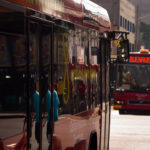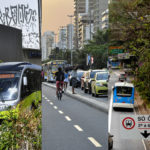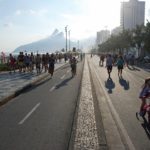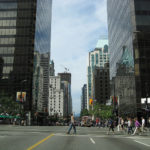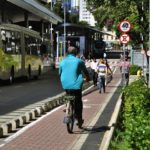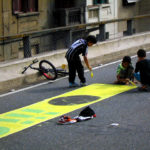Posts tagged with 'Rio de Janeiro'
After last week’s Fourth of July celebrations here in Washington DC, summer has truly arrived. Throughout the season, the capital of the US features a spectacular lineup of street festivals in its public squares. From the Fourth of July celebrations ...

Known for its beautiful natural landscapes, Christ the Redeemer statue, and Copacabana beach, Rio de Janeiro is an iconic city. Citizens’ ability to access these and local opportunities, though, has been limited in the past due to increased reliance on ...

This article was originally published on January 15, 2015 by the Thomson Reuters Foundation. Last year marked an important tipping point: for the first time, half of the global population lives in cities. Cities currently add 1.4 million people each ...

The winners of the 2015 Sustainable Transport Award have been announced! Organized by the Institute for Transportation and Development Policy (ITDP), the Sustainable Transportation Award (STA) recognizes outstanding vision and innovation in sustainable transport over the past year. Announced today ...

Rio de Janeiro is one of the world’s leading cities injecting sustainability into its planning. In 2011, Mayor Eduardo Paes enacted an ambitious climate change law, setting a goal to avoid 20% of its emissions by 2020, based on 2005 levels. There ...

Brazil’s cities, home to 85% of the country’s population, are already feeling the effects of climate change. Intense rains and floods in Rio de Janeiro are causing fatal landslides with high social and infrastructure costs. Temperatures are climbing to record-breaking highs in Porto ...

From 2009 to 2012, the number of traffic deaths on Brazilian streets has increased gradually each year – peaking in 2012, when 44,800 people lost their lives in traffic crashes. However, preliminary data from the National Health System (SUS) indicates ...

Cities worldwide face the pressing challenge of growing motorcycle fleets and remarkable increases in related traffic fatalities. With streets ill-prepared and motor-bikes whizzing in every direction, the scene might best be described as urban transport anarchy. The problem is especially ...

Rio de Janeiro is breathtaking. It just takes a walk along the boardwalk of the Copacabana and Ipanema beaches, for example, to be completely absorbed by the city’s natural beauty and the thousands of people enjoying these sites. There you ...

Last week, cities around the world made bold commitments to confront climate change. The Compact of Mayors, announced at the UN Climate Summit in New York City, convenes cities to set ambitious targets and report their performance transparently. It builds ...

Update: 9/22/2014: The People’s Climate March on Sunday, September 21, 2014 included more than 400,000 participants in New York City alone, making it the largest climate march in history. In total, 160 marches occurred globally with another 2,800 solidarity events in 166 countries. Organizers plan to continue these ...

Conducted by the Brazilian National Association of Transport Operators (NTU), this year’s Seminar on Urban Public Transportation responded to a growing demand among Brazilian citizens for improved public transport. On August 27 and 28, 2014, city planners, experts, transport operators, ...

Traffic congestion has wide ranging costs, from increasing stress and pollution levels to wasting commuters’ time. A new study released by the Industry Federation of the State of Rio de Janeiro (FIRJAN) confirms that traffic congestion has tremendous economic costs ...

World Cup fans may be focused on the games, but critics are paying attention to another aspect of the event—its price tag. Brazil spent billions of dollars on World Cup infrastructure, and many are understandably questioning the long-term benefits these ...

Not in Brazil for the World Cup? No problem! Sure, you can catch the games at your favorite local sports bar, but did you know that you can experience the atmosphere of the city streets, as well? Google Street View ...

Page 3 of 5« First...234...Last »













